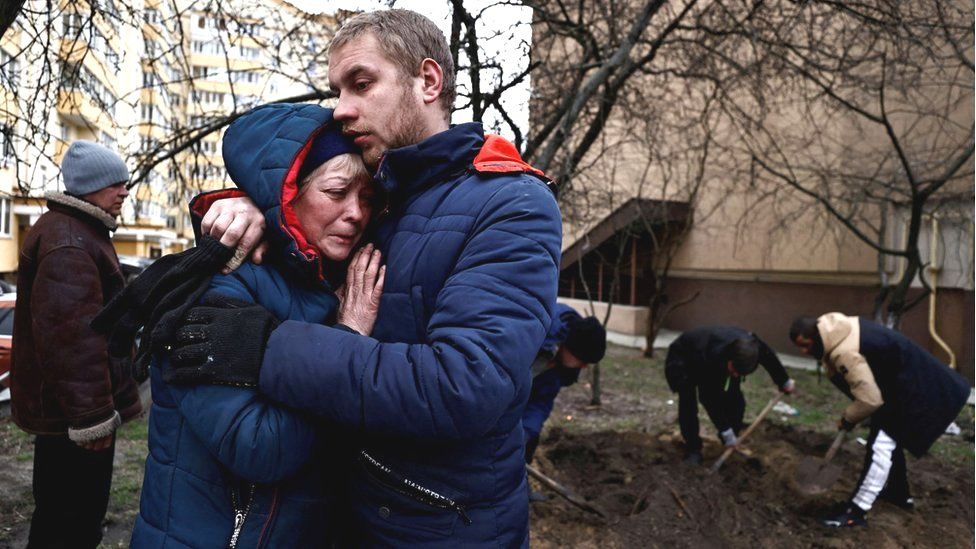Attacks on civilians by Russian forces in the Ukrainian town of Bucha do not “look far short of genocide”, Prime Minister Boris Johnson has said.
Mr Johnson said he believed Western governments would impose further sanctions in response to the killings.
Dozens of people have been found dead in the town – including some in a mass grave – after Russia’s withdrawal.
Moscow denied involvement and described reports as fake news.
The prime minister said that he was confident that there would be further sanctions and that EU nations would be able to stop buying Russian oil and gas.
“I’m afraid when you look at what’s happening in Bucha, the revelations that we are seeing from what Putin has done in Ukraine doesn’t look far short of genocide to me,” he said.
“It is no wonder people are responding in the way that they are. I have no doubt that the international community, Britain very much in the front rank, will be moving again in lockstep to impose more sanctions and more penalties on [Russian President] Vladimir Putin’s regime.”
As part of its sanctions response, the UK has pledged to stop importing Russian oil by the end of the year, while the EU is reducing its imports of Russian gas by two-thirds.
Speaking to broadcasters on a visit to a hospital in Welwyn Garden City, Mr Johnson praised the “enormous strides” the EU is taken to reduce dependence on Russian gas.
Labour leader Sir Keir Starmer also called for “even tougher sanctions” following the “horrific, harrowing images” of civilian deaths in Bucha.
He said we have to give Ukraine “every support we can” and said the international community must be clear “that these war crimes will end up with those responsible being hunted down”.
The deliberate targeting of civilians, as has been alleged by residents of Bucha, is a war crime under the Geneva Convention.
But for a massacre to be considered genocide, the law also requires proof of the intent to destroy a particular national, ethnic, racial or religious group – whether entirely or in part.
The Genocide Convention, introduced after the Nazi Holocaust during World War Two, requires the 152 nations who are signatories to “prevent and to punish” genocide where it occurs.



